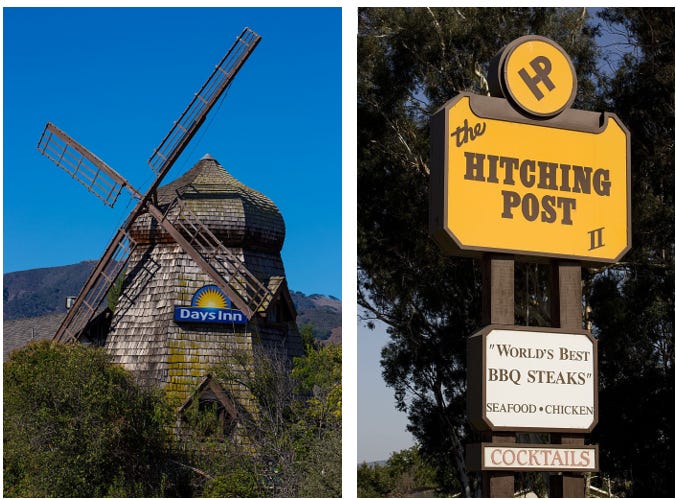|
 |
Prelude to a Sequel
‘Sideways’ author Rex Pickett believes it’s time for a sequel to the hit film. His writing career shows he may have a point
By Stephen Buck
The first question fans usually ask “Sideways” author Rex Pickett is “When’s the sequel coming?” Despite 20 years since the theatrical release of the Academy Award-winning film based on the book by Pickett and directed by Alexander Payne, enthusiasm for a sequel runs strong. Some of the principals involved in the making of the film are reluctant to engage in such talk, maintaining that the original was a once-in-a-lifetime bit of movie magic. They worry that a sequel will not only come up short in comparison to the original but could even damage its legacy.
Pickett isn’t one of those people—he thinks revisiting the story and characters that made the film such a winner would truly resonate with audiences. It’s worth listening to him: His past work has proven ideal for adaptation.
Taking a Trip With Miles and Jack
In the event you haven’t seen or read “Sideways” (or need a refresher), it’s the story of a road trip to Santa Barbara County wine country by two middle-aged men, Miles and Jack (in the film, played by Paul Giamatti and Thomas Haden Church, respectively). Miles is a divorced, struggling writer and consummate enophile mired in his sorrow as life slips by. Jack, his best friend, is a washed-up actor getting married in a week but eager to experience one last fling before the wedding. Needless to say, the prenuptial sojourn doesn’t go as planned, especially after they meet Maya (Virginia Madsen) and Stephanie (Sandra Oh).
To say that the film has aged like a fine wine is not only the most obvious analogy but also the most apropos. With a Metacritic score of 94, “Sideways” ranks among the best movies in the first quarter of this century. As time has passed, new generations have discovered the movie on streaming platforms, where it’s a mainstay. Part of the reason for its strong following is the movie’s faithfulness to the sparkling source material. Not only does the film faithfully follow the book, a considerable amount of dialogue is taken verbatim. This isn’t surprising because during the production of “Sideways”, Alexander Payne provided Pickett with drafts of the screenplay for his comments and suggestions.
As for wine sales, what more can be said about how “Sideways” boosted consumption of pinot noir while putting a small dent in the sales of merlot? Called the “Sideways effect,” it was confirmed by researchers at the University of California at Davis in the Journal of Wine Economics. Their tasty conclusion: Thanks to the movie, plantings of pinot noir grapes went up, while plantings of merlot went down.
One needn’t over-imbibe data to experience the lasting impact of “Sideways.” Just go to the Santa Ynez Valley—two hours north of Los Angeles—and judge for yourself. “Sideways” looms large in the consciousness of the drivers motoring through bucolic pastures, chasing the same epicurean delights as the characters in the movie. Numerous wineries, restaurants, hotels and wine tours celebrate the movie in some form or another (yes, the Windmill Inn where Miles and Jack stay in Buellton is now officially “The Sideways Inn”). If you make a joke about pouring a spit bucket of wine over your head while wine tasting, you’ll likely get a smile or chuckle, and most everyone will get the reference.
Following the success of “Sideways” as a film, Pickett penned three follow-on novels that see Miles and Jack travel to Oregon, Chile and New Zealand. Any or all of these could be adapted as a film, which leads us back to the original question: Will a movie sequel be made? Depending on whom you talk to, the answer ranges from “maybe” to “unlikely.” Why?
Time for a Sequel?
A few weeks ago, the stars of “Sideways” reunited for a special 20th anniversary screening of the film in Hollywood. According to reports from the event, most everyone shared the same sentiment: Films with the cultural impact and staying power of “Sideways” are rare. The stellar writing, acting and directing combine seamlessly to give the film its unique charm. Even the jazzy score by Rolfe Kent is pure perfection. Perhaps it’s the film’s irresistibility all around that explains why director Payne has admitted to being reluctant to revisit the story.
For his part, Pickett doesn’t mince words on this question. “‘Sideways’ is Alexander Payne’s legacy film. He’s made some other good ones, like ‘Election,’ but ‘Sideways’ is his one, timeless masterpiece,” Pickett said when interviewed for this piece.
Still, Pickett has no apprehension about a film sequel sourced from his novels. When asked if it could be as good as the first film, Pickett said “I don’t know if it could exceed the original—I kind of doubt it—but the brand recognition and the fan base is so colossal. I’ve asked a lot of people this question. Even if it were half the original, it could still be a hit. Written right, and age-appropriately, it could rival the original for poignancy.”
No doubt any writer would feel this way about their work. However, Pickett’s got some proof that audiences might feel the same. About 10 years ago, Pickett decided to create a theatrical version of “Sideways.” What started at a small theater in Santa Monica went on to the La Jolla Playhouse (directed by Des McAnuff), London’s West End, Spain and Riga, Latvia. While the play has yet to make it to Broadway, audiences have enjoyed this live adaptation of the book. I saw both stagings in California, and they were both fantastic like the movie, though different from the silver screen adaptation. What the play lacks in wine country scenery, it makes up for with the humor and pathos in the dialogue when delivered by live actors. Judging by the laughter from the audience, I can say with certainty that "Sideways" as a play works.
But let’s go back to Hollywood. There are certainly logistical hurdles to getting a “Sideways” sequel made. Some have speculated that “Sideways” distributor Fox Searchlight is waiting for Payne to decide if he wants to proceed. Pickett believes the studio is much more likely to greenlight a sequel if Payne, Giamatti and Haden Church commit to the project. But even if this is the case, the window of time to decide is not infinite: Actors get older, tastes change, the movie studios find something new.
Furthermore, in Hollywood, there’s a tension between the artistic endeavor of filmmaking and the business of movies. It’s no secret that studios prioritize making an outsized financial return versus creating the next acclaimed work of art. In its effort to make a quick buck, the studio may choose to adapt Pickett’s work in a lackluster way, ending up with a poor imitation of his artistic voice. Or worse, they could ignore his written work altogether and hire new writers. Many sequels are made this way, taking advantage of the brand name and notable actors while skimping on the writing. There are exceptions—such as “The Godfather Part II,” “L’Eclisse,” “Before Midnight,” “Goldfinger” and “Mad Max: Fury Road”—but these are rare.
For Pickett, the question of whether a sequel gets made is a deeply personal matter. He worries that even if the project should come together, his writing could get bypassed. “I worry that they may not want to return to the fold of Rex Pickett—my voice, my sense of humor, my sense of very personal self-deprecation.”
Pickett has good reason for being pessimistic. The rejection that Miles suffered in the book and film mirrors the rejection that Pickett faced in getting “Sideways” published as a novel—a tally exceeding 200 rejections. Upon reading “Sideways,” Barbara Schock, Pickett’s ex-wife and a member of the faculty at NYU’s Tisch School of the Arts film program, gave Pickett some simple advice: “Burn it.”
Thankfully, his unwavering belief in his art would eventually allow the world to see it. To this day, he continues to believe there is an audience for films with intelligent, character-driven stories. Poignant stories that don’t shy away from inviting introspection with a bit of gallows humor. Movies that people will talk about 50 or 75 years from now. All the things that Pickett believes a “Sideways” sequel could be.
Before ‘Sideways’
Meanwhile, there’s an important backstory that happened before “Sideways” that needs to be told. It’s especially important if you’re inclined to believe that a “Sideways” sequel could be successful is just pure fantasy, because there is another film in Pickett’s storytelling history that may persuade you otherwise. It’s not a prequel to “Sideways” but perhaps can be described as a prelude of sorts.
The story of that film starts about seven years before “Sideways” and again involves Rex and his ex-wife Barbara. As part of Barbara’s thesis for the American Film Institute, she and Rex produced a short live-action film. Schock directed and Pickett wrote the screenplay (in three days), which he titled, “My Mother Dreams the Satan’s Disciples in New York.” (You can watch the full short film here, and I highly recommend that you do.) The title alone is indicative of the irony-laced humor that fills this 30-minute film.
The movie centers around Marian, a recent widow living alone in South Dakota, struggling with mental health issues. Instead of escaping the city for wine country, she leaves the farm to visit her daughter in New York’s East Village. Like Miles, she is medicating herself to cope with the anxiety and restlessness she’s experiencing. The film also includes wine, infidelity and at least one motorcycle. Sound familiar?
To be fair, these particular elements shared with “Sideways” are superficial coincidences. However, the two films definitely share some DNA, and that is evident in Pickett's distinctive approach to storytelling. His talent for creating moments of laugh-out-loud humor as characters struggle through life’s sorrows is a hallmark of his writing. The levity provided by his characters’ unexpected and near-farcical actions is never degrading but artfully turns their bitter circumstances bittersweet.
In his review of “Sideways,” Wall Street Journal film critic Joe Morgenstern wrote that the film “makes you glad about America, about movies, about life.” The very same can be said for Pickett’s writing and Schock’s directing of “My Mother Dreams the Satan’s Disciples in New York.” In both films, Pickett persuades us that finding comedy in all the strange ways we cope with the travails of life can be cathartic and humanizing.
I don’t want to say anything more about the specifics of the film to spoil it for those of you who haven’t seen it. However, there is one last coincidence of historical proportions to mention: On Oscar night in the year 2000, five years before “Sideways” won its Academy Award, Jude Law and Cate Blanchett announced the nominees for best live action short film, including one film Law said had the “most interesting title of any Oscar film this year.” The winner? “My Mother Dreams the Satan’s Disciples in New York.” And like Payne would do five years later, Schock started her acceptance speech by thanking Pickett.
So just maybe, a few years from now, there’ll be one more “Thank you, Rex Pickett” to look forward to. If Hollywood preserves Pickett’s voice in such an endeavor, the risk just might be worth the reward.
Stephen Buck is a freelance writer and entrepreneur based in Southern California.
If you enjoyed this piece, please consider giving to Discourse. Your contribution will help us to continue offering all readers, free of charge, the thoughtful and diverse content that you’ve come to love.
You’re currently a free subscriber to Discourse .

